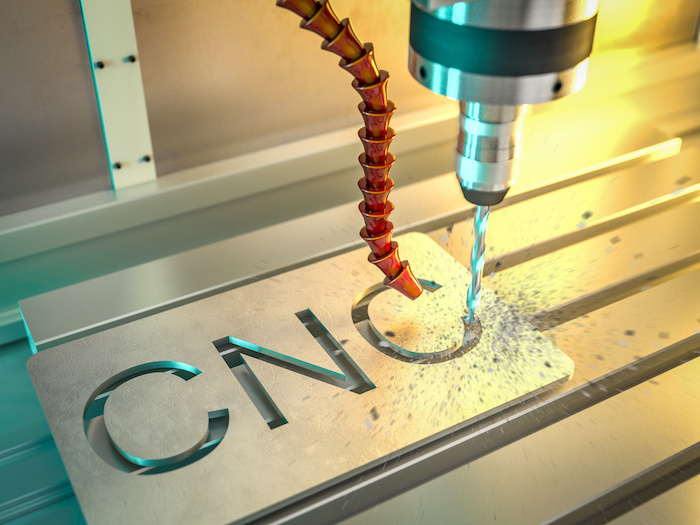In modern manufacturing, the machining center has become an indispensable tool in the production of precision parts. As highly automated and versatile CNC equipment, machining centers significantly improve production efficiency and product accuracy. They are now essential in various industries. This article provides a comprehensive overview of machining centers, covering their definition, types, key features, applications, selection criteria, and maintenance tips, helping you understand and choose the right machining center for your needs.

What is a Machining Center?
A machining center is a type of CNC machine that is equipped with an automatic tool changer and a tool library. It is designed to perform multiple machining processes such as milling, drilling, tapping, boring, and more, in one setup. Compared to traditional machines, machining centers greatly reduce setup times, improve machining accuracy, and enhance overall productivity.
Typically controlled by a CNC system, a machining center can automatically switch between different processes, reducing the need for manual intervention. These machines are widely used in industries such as aerospace, automotive, mold manufacturing, electronics, and medical devices.
Main Types of Machining Centers
Depending on the structure and functionality, machining centers can be classified into several types:
1. Vertical Machining Center (VMC)
- The spindle is vertically aligned, making it suitable for processing medium and small-sized parts.
- Space-efficient and ideal for compact production layouts.
- Commonly used in mold making, mechanical parts, automotive components, and more.
2. Horizontal Machining Center (HMC)
- The spindle is horizontally aligned, and it often comes with a pallet changer system for larger, complex parts.
- Provides high cutting efficiency and is suitable for continuous, high-volume production.
- Widely used in heavy machinery, automotive engine blocks, valve bodies, and other large workpieces.
3. 5-Axis Machining Center
- Can control three linear axes (X, Y, Z) and two rotary axes simultaneously, making it perfect for complex surface machining.
- Ideal for industries requiring high-precision machining of aerospace parts, medical devices, and precision molds.
- Greatly enhances flexibility and the ability to complete parts in one setup.
Key Features of a Machining Center
A machining center typically offers the following features:
- Milling: For flat surfaces, contours, slots, and other cutting operations.
- Drilling: Enables fast and efficient hole-making.
- Tapping: For internal thread processing.
- Boring: For enlarging or finishing holes with high precision.
- Reaming: For improving hole dimensions and surface finish.
- Multi-face Machining: Achieved through CNC rotary tables or 5-axis control, enabling complex machining without re-clamping.
By using various tool types and fixtures, machining centers offer versatile and high-efficiency operations, reducing process time and improving product quality.
Applications of Machining Centers
As the manufacturing industry demands higher precision, speed, and complexity, machining centers play a vital role in various fields:
- Aerospace: Machining complex parts such as turbine blades, aircraft body components, and engine structures.
- Automotive Manufacturing: Efficient production of engine blocks, transmission housings, and chassis parts.
- Mold Making: Precision milling and engraving of injection molds and stamping dies.
- Electronics: Production of precision parts for 5G communication devices, heat sinks, connectors, and housings.
- Medical Devices: Manufacturing custom parts such as artificial joints, dental implants, and surgical instruments.
Whether it’s single-piece, high-precision work, or large-batch production, machining centers provide robust support for all manufacturing needs.
How to Choose the Right Machining Center?
When selecting a machining center, several key factors should be considered to match your production requirements:
1. Workpiece Size and Travel Requirements
- Choose a machine with the appropriate worktable size and X/Y/Z-axis travel to fit your part specifications.
2. Precision and Surface Finish Requirements
- For industries that require tight tolerances, opt for models with high rigidity and stability.
- If fine surface finish is required, ensure the machine’s spindle speed and vibration control capabilities are adequate.
3. Type of Workpiece and Machining Operations
- Simple parts can be processed on three-axis VMCs, while complex, multi-sided parts may require a 5-axis machining center.
- Consider tool capacity and tool-changing speed for jobs that require frequent tool swaps.
4. Automation and Smart Features
- Consider whether additional features like pallet changers, automatic loading/unloading, and online inspection are needed to enhance efficiency.
5. Brand Reputation and After-Sales Support
- Choose a machining center from a trusted brand known for reliability and offer strong after-sales service and technical support.
Installation and Maintenance Tips for Machining Centers
- Proper Installation: Ensure the machine is installed on a stable foundation to minimize deformation and vibration during operation.
- Regular Maintenance: Perform checks on the lubrication system, spindle condition, and electrical components to ensure long-term reliability.
- Daily Cleaning: Keep the machine free from chips, coolant residue, and dirt to ensure smooth operation.
- Follow Operational Guidelines: Use the machine according to the manufacturer’s instructions to avoid overload and unnecessary wear.
Maintaining a routine of proper usage and maintenance can significantly extend the life and performance of your machining center.
Why Choose Our Machining Centers?
We specialize in providing high-performance, reliable machining center solutions for various industries. Our products offer:
- High-Rigidity Structure: Ensures stable, high-precision machining for long-term use.
- High-Speed Spindles and Large Tool Capacity: Increases productivity with faster processing times.
- Intelligent Control Systems: Supports automatic tool changeovers and real-time monitoring for precision manufacturing.
- Customized Solutions: Tailored machining center recommendations and technical support based on specific project requirements.
- Comprehensive After-Sales Support: Fast response times to ensure uninterrupted production.
If you are looking for a reliable machining center for your production line, feel free to contact us for more information and a personalized quote!

